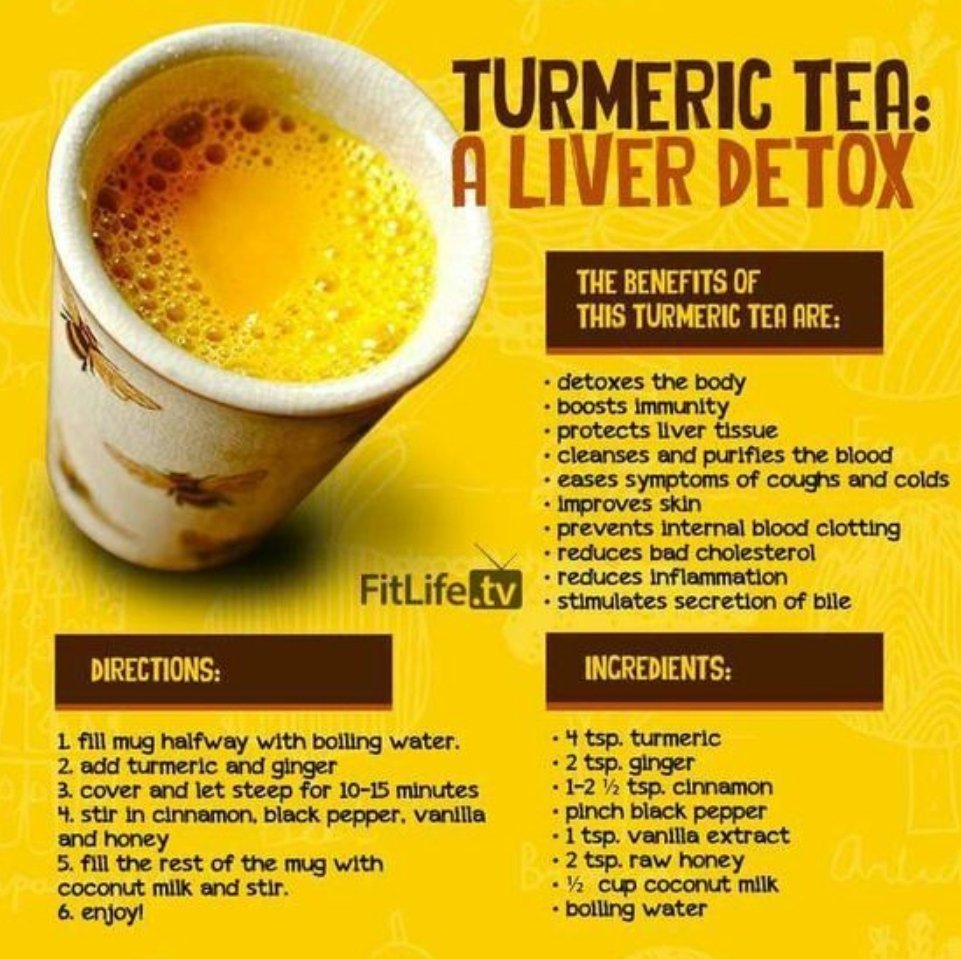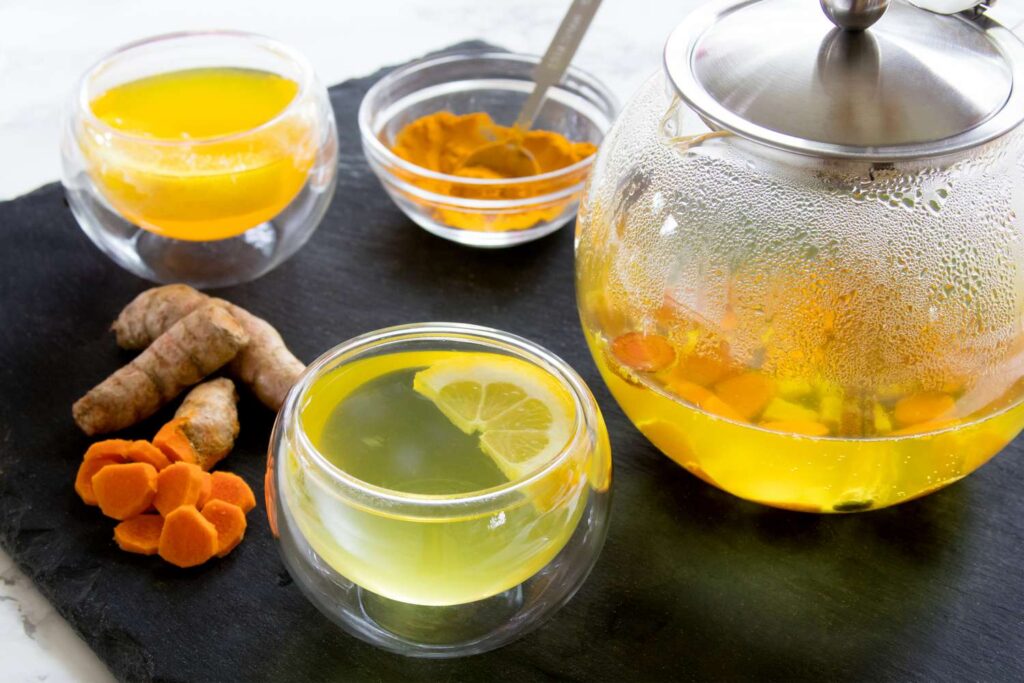Turmeric tea, a golden-hued beverage steeped in tradition and modern wellness trends, has garnered global attention for its potential health benefits. Derived from the rhizome of the Curcuma longa plant, this vibrant spice has been a cornerstone of Ayurvedic and traditional Chinese medicine for millennia. In this detailed guide, we explore the science-backed benefits of turmeric tea, its nutritional profile, and practical ways to incorporate it into your daily routine.

What Is Turmeric Tea?
Turmeric tea is made by steeping fresh or powdered turmeric root in hot water, often enhanced with complementary ingredients like black pepper, ginger, or honey. The star compound, curcumin, is responsible for its anti-inflammatory and antioxidant properties, though its bioavailability is naturally low. Pairing turmeric with black pepper (which contains piperine) or fats like coconut oil can enhance absorption by up to 2,000% 137.
This caffeine-free drink is celebrated not only for its earthy, slightly peppery flavor but also for its versatility. From traditional Indian haldi ka kadha to modern “golden milk” lattes, turmeric tea adapts to diverse palates and health needs.
Nutritional Profile of Turmeric Tea
A single cup of turmeric tea made with one teaspoon of ground turmeric provides:
- Calories: 8–30 (depending on additives like milk or honey)
- Micronutrients: Manganese (26% DV), iron (9% DV), potassium, and vitamin C 39.
- Bioactive Compounds: Curcuminoids (including curcumin), volatile oils, and flavonoids 37.
While turmeric itself is low in macronutrients, its potency lies in these bioactive compounds, which contribute to its therapeutic effects.

Top Health Benefits of Turmeric Tea
1. Anti-Inflammatory and Arthritis Relief
Chronic inflammation is linked to conditions like arthritis, heart disease, and metabolic syndrome. Curcumin in turmeric tea inhibits inflammatory pathways, such as NF-kB and COX-2 enzymes, which are associated with joint pain and swelling. A 2021 meta-analysis found turmeric extract as effective as NSAIDs for knee osteoarthritis, with fewer side effects 179. Regular consumption may reduce morning stiffness and improve mobility in arthritis patients 810.
2. Supports Cardiovascular Health
Turmeric tea may lower LDL cholesterol, triglycerides, and blood pressure—key risk factors for heart disease. Curcumin improves endothelial function, which regulates blood flow, and reduces oxidative stress linked to atherosclerosis 279. A 2019 study noted significant improvements in cholesterol levels among high-risk individuals 1.
3. Enhances Brain Function and Mood
Curcumin boosts levels of brain-derived neurotrophic factor (BDNF), a protein vital for cognitive health. Low BDNF is associated with depression and Alzheimer’s disease. Studies suggest turmeric tea may slow neurodegenerative decline and alleviate symptoms of depression by modulating serotonin and dopamine pathways 7910.

4. Aids Digestive and Metabolic Health
Turmeric tea stimulates bile production, aiding digestion and reducing bloating. It also improves insulin sensitivity, making it beneficial for managing type 2 diabetes and polycystic ovary syndrome (PCOS). A 2020 trial found that 500 mg of curcumin daily lowered fasting blood sugar in PCOS patients 18.
5. Liver Protection and Detoxification
Curcumin’s antioxidant properties combat oxidative stress in the liver, reducing damage from toxins or fatty liver disease. However, excessive doses (over 8g/day) may cause liver injury in susceptible individuals, emphasizing the need for moderation 17.
6. Immune System Modulation
Turmeric tea’s antiviral and antibacterial properties help fortify the immune system. Curcumin modulates immune cells like T-cells and macrophages, potentially reducing the severity of infections and autoimmune conditions 810.

7. Cancer Prevention Potential
Though research is preliminary, curcumin shows promise in slowing cancer cell growth, particularly in the digestive tract. Its antioxidant activity neutralizes free radicals, which contribute to DNA damage 27.
How to Use Turmeric Tea: Recipes and Tips
Basic Turmeric Tea Recipe 56
Ingredients:
- 1 cup water or milk (dairy or plant-based)
- 1 tsp turmeric powder or 1-inch fresh turmeric (grated)
- ¼ tsp black pepper
- Optional: 1 tsp honey, ½ tsp cinnamon, ½-inch ginger
Instructions:
- Boil water/milk in a saucepan.
- Add turmeric, pepper, and other spices. Simmer 5–10 minutes.
- Strain and sweeten with honey.
Variations:
- Golden Milk: Add coconut milk and simmer with turmeric, ginger, and cinnamon for a creamy latte 69.
- Cold Brew: Steep turmeric in cold water for 24 hours; mix with lemon and honey 5.
- Detox Tonic: Combine turmeric, apple cider vinegar, and cayenne pepper 6.
Enhancing Absorption:
- Add Fats: Coconut oil or ghee improves curcumin solubility 39.
- Pair with Piperine: Black pepper boosts bioavailability by 2,000% 17.

Safety and Considerations
While turmeric tea is generally safe, consider the following:
- Medication Interactions: Curcumin may interfere with blood thinners (e.g., warfarin), chemotherapy drugs, and diabetes medications 278.
- Pregnancy: Limited data exists; consult a doctor before consumption 48.
- Dosage: Stick to 1–2 cups daily. High doses (>8g/day) may cause nausea or diarrhea 79.
Conclusion: Embracing Turmeric Tea for Holistic Wellness
Turmeric tea is more than a trendy beverage—it’s a bridge between ancient wisdom and modern science. From easing arthritis pain to protecting heart health, its benefits are vast, though further clinical trials are needed to solidify these claims. By incorporating turmeric tea into your routine with mindful preparation, you can harness its potential while savoring its rich, earthy flavor.
Experiment with recipes, pair it with complementary spices, and consult healthcare providers if you have underlying conditions. Whether sipped as a morning tonic or a bedtime elixir, turmeric tea offers a simple yet powerful way to nurture your body and mind.